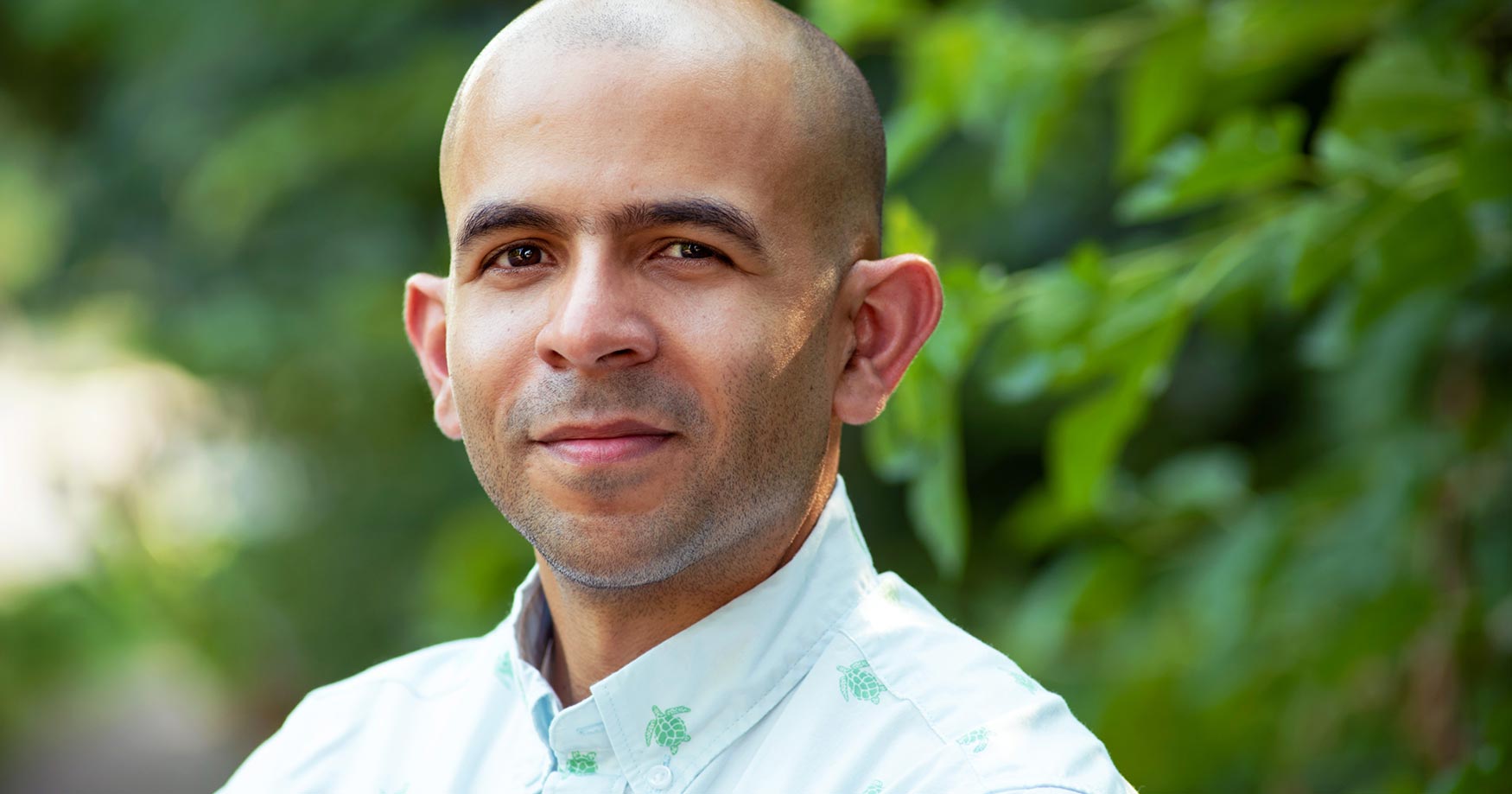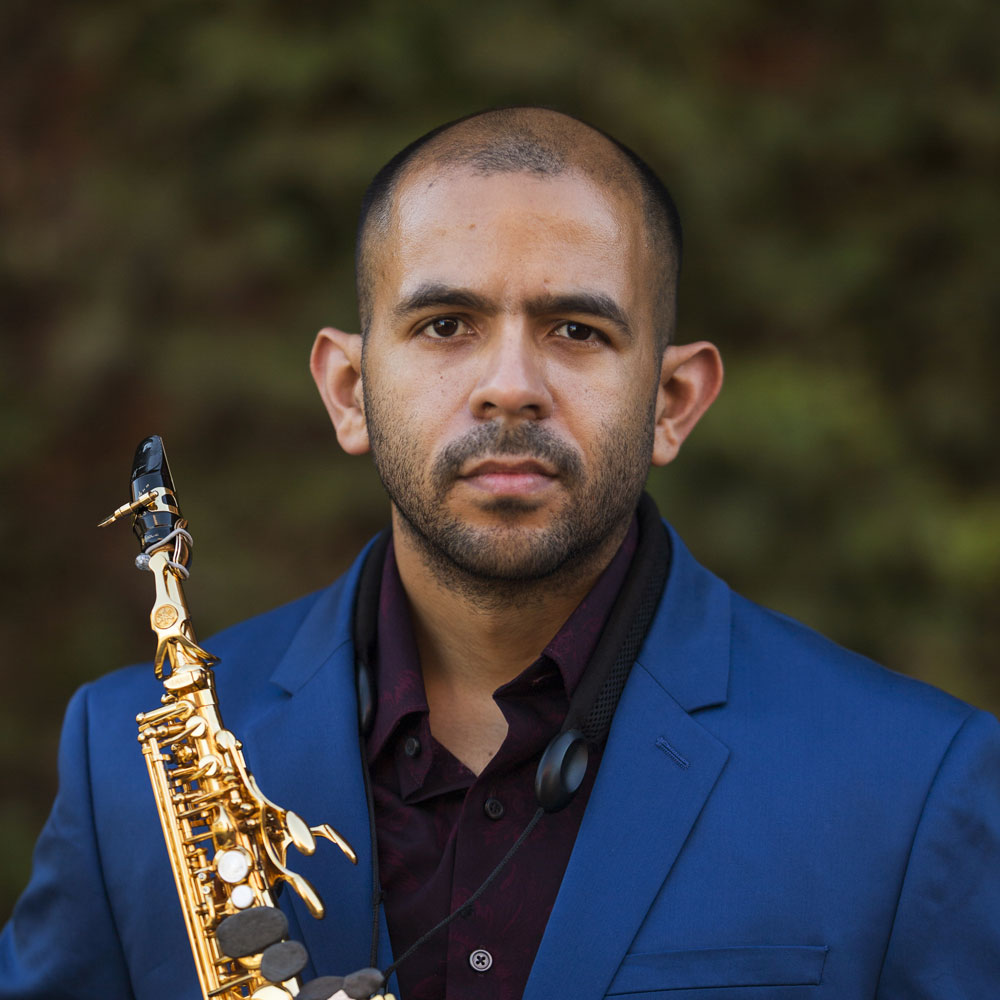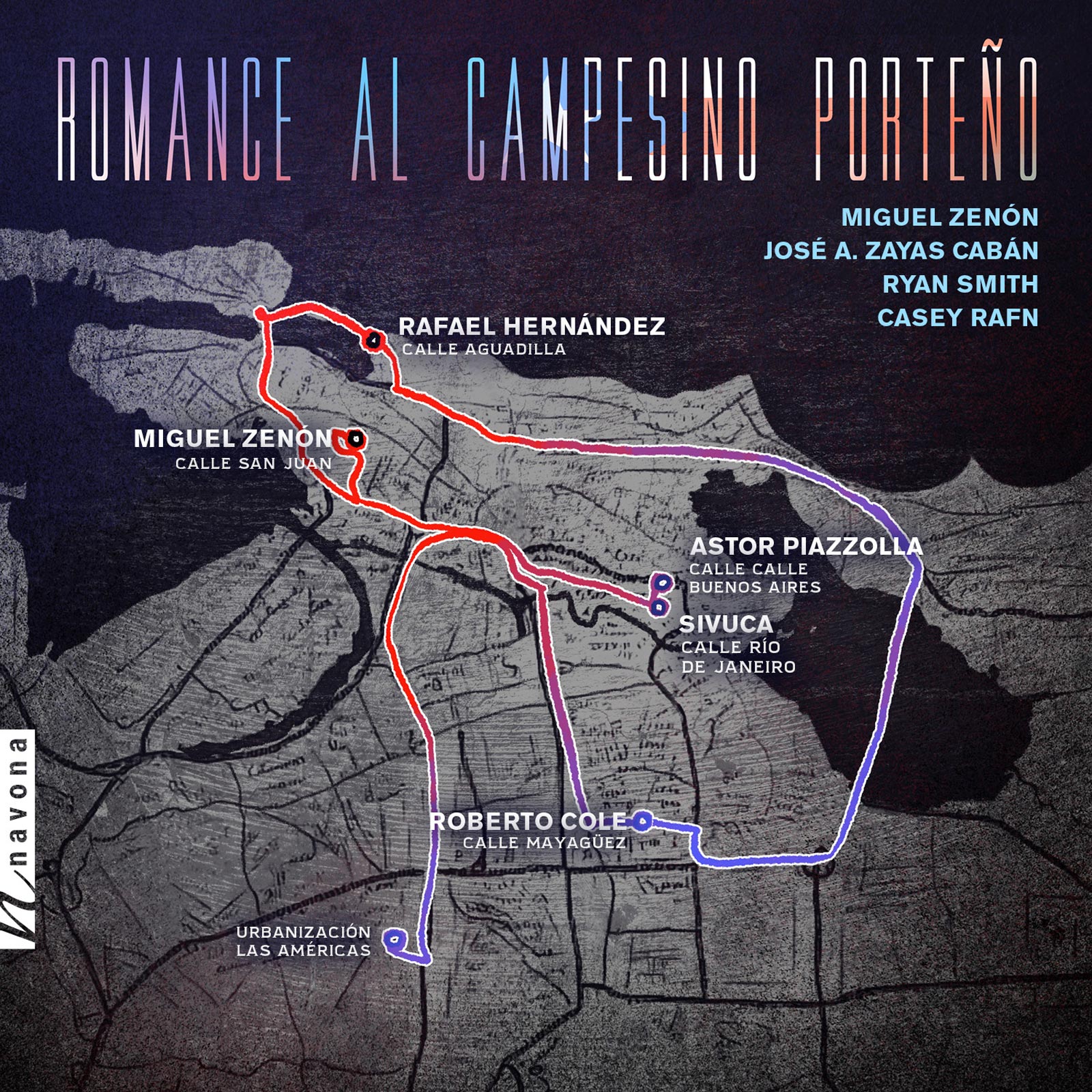
ROMANCE AL CAMPESINO PORTEÑO threads saxophonist José Antonio Zayas Cabán’s childhood memories with music both old and new. The tunes of his childhood and his culture sonically surround a newly-composed piece, the Grammy-nominated El País Invisible, that addresses Puerto Rico’s political status as a commonwealth of the United States Empire. Featuring Miguel Zenón, Ryan Smith, Casey Rafn, and Zayas Cabán himself, ROMANCE AL CAMPESINO PORTEÑO explores the textures of Puerto Rico and Latin America, and the sounds of both struggle and celebration.
Today, José is our featured artist in “The Inside Story,” a blog series exploring the inner workings and personalities of our composers and performers. Read on for insight into the making of this important album, and for a few tips for travelers who are interested in exploring Puerto Rico and learning more about its culture…
How did you come to work with Zenón, Smith, and Rafn?
I met both of them in graduate school at the University of Iowa. Casey first worked with me after he finished his masters degree at Iowa. Ryan and I met when he and I joined the saxophone studio to start our doctoral degrees. We performed together in a saxophone ensemble and spent a lot of time in the same spaces during that time. Both have always been a positive presence and great collaborators. After I started to spend more time thinking about how to raise awareness about Puerto Rico, I reached out to Miguel about commissioning a work. Thankfully he was interested and available, and I was very lucky to secure the New Music USA funding to make it happen. Miguel has been such a pleasure to work with and his music has really helped elevate Puerto Rico’s musical sounds and history.
As a native and frequent visitor of Puerto Rico, what are some things people who have yet to visit should be aware of?
Puerto Rico has incredible food, beautiful public beaches and great scenery. Often people are encouraged to stay in the San Juan area so I would always encourage friends and first time visitors to travel around the island and through the island. Because Puerto Rico is so mountainous, climates are different depending on what part of the island you are visiting. Traveling through the middle or around it has many different things to offer. I also encourage people to stop and converse with community members if they are comfortable and get the chance. People in Puerto Rico are often warm, welcoming, and treat you like family.
Who are some of your favorite artists from Puerto Rico? Is there any specific music from the region that you’d recommend listeners to experience?
I spent a lot of time listening to the artists recorded by Fania, often in the Fania All Stars albums. I also listened to El Gran Combo, music by Rafael Hernández and Bobby Capó, but also enjoyed reggaeton and listened to albums by a collective called The Noise, and sometimes Daddy Yankee. Miguel, like David Sanchez, came up a lot in conversation when I talked about starting a career in saxophone. I also followed Miguel and his quartet because one of his collaborators, Henry Cole (drums), went to the after school music program in my hometown. In fact, Romance del Campesino is by Roberto Cole, a relative of Henry.
What are some of your favorite musical moments on the album? Anything specific listeners should focus on in terms of sound, repertoire, overall themes or messages?
It’s a story about a personal journey. What I would actually suggest is to listen to it with the liner notes. I can’t say enough about Katheryn and her essay, and I hope it gets readers thinking more deeply as they listen. As far as listening, if you find yourself smiling, or moving to the music, it’s because we were having a great time putting the album together. Raising awareness and having discussions through music can be a positive experience, even if the subject is difficult. Puerto Rico has a difficult history as a colony. In spite of that, so many beautiful things have emerged throughout our history. Miguel’s work, the other compositions in the album, and even the music from other countries, it’s a testament to the gorgeous art that can emerge from circumstances like colonialism and oppression.
What’s next for you? Are there any new projects on the horizon that you’re particularly excited about?
Yes! Angélica Negrón will be in residence in Minneapolis next year, in 2024. The next stage of this project is to address that issue of invisibility that we introduced with Miguel’s El País Invisible (The Invisible Nation). We are going to put together some community engagement sessions for the Puerto Rican diaspora in the Twin Cities to join, eat, share stories and journeys — how they got to the mainland, why, and anecdotes of Puerto Rico as visitors or residents of the island. The composition Angélica is writing will be titled Pedacito de Tierra (Little Piece of Land), and it will draw from those sessions so that audiences can engage with a musical collage of stories and journeys. The world premiere will be at the end of August 2024, in the Twin Cities. It will be truly special.
Should listeners be inspired to take action after hearing your work, what steps would you recommend they take to help turn the tide?
Puerto Rico, as a colony, has never enjoyed sovereignty and prosperity because, economically and politically it is controlled and limited by the United States Empire. Puerto Rico has been a colony for over five centuries. This album is more of a story of finding intellectual liberation through music, and my hope is that listeners are inspired to take action so that Puerto Rico and its residents get the right to choose for themselves.

A Grammy-nominated artist and McKnight Fellow, José A. Zayas Cabán has presented performances and taught master classes throughout Europe, the Caribbean, and North America. A native Puerto Rican (born and raised in Mayagüez PR) and musician activist, José now resides in Minneapolis MN and is building an artistic career focused on developing projects, albums, and collaborations that address, respond, and raise awareness about current events and social issues.

